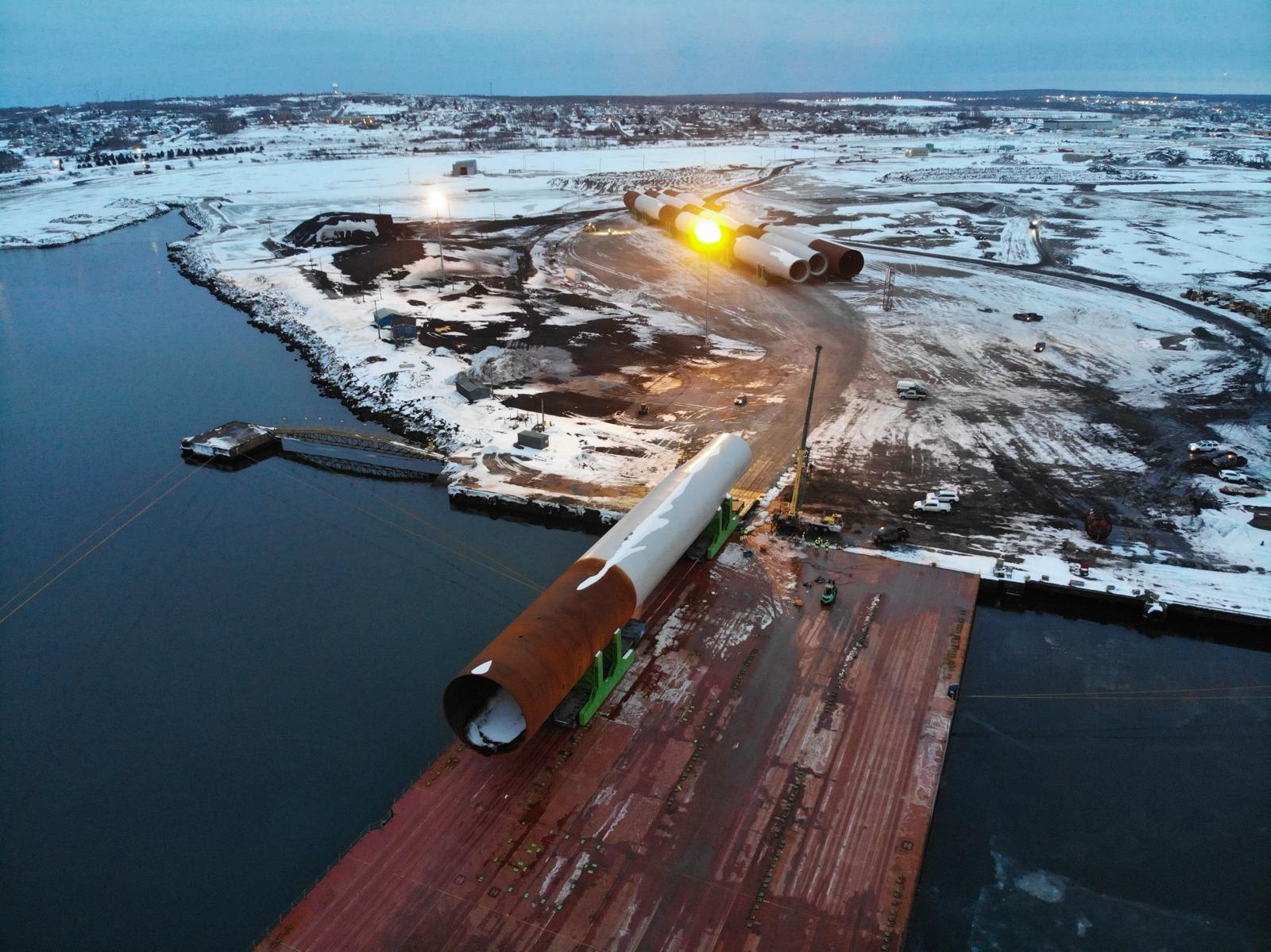
In 2024, as offshore wind construction ramped up in the United States, developers encountered a major logistical challenge—how to transport massive, European-manufactured monopiles across the Atlantic and deliver them in time for installation. With strict U.S. maritime regulations, limited domestic port capacity, and a global shortage of suitable vessels, the pressure to identify alternative solutions intensified.
The issue was compounded by continuous monopile production, which quickly outpaced installation capacity. With storage areas at manufacturing yards filling up, the need for additional marshalling space became critical.
One solution emerged in Sydney, Nova Scotia, where the Atlantic Canada Bulk Terminal was identified as a promising marshalling site. With a longstanding history of handling steel and a strategic location close to transatlantic shipping lanes, the terminal offered an ideal alternative by reducing costs and facilitating more efficient transport to the project site.
Sarens, the global leader and reference in crane rental services, heavy lifting, and engineered transport, played a central role in making this solution a reality. Leveraging its extensive experience and existing presence in Canada, Sarens mobilised rapidly to assess the site’s capabilities and engineer the necessary infrastructure. This included quay reinforcements, transport engineering, yard laydown planning, and the design and construction of a Roll-on/Roll-off (RORO) ramp to compensate for low-bearing quayside terrain.
Crucial to the success of the operation was Sarens’ strong network of local partnerships. Working in close collaboration with Waterford Energy Services and other regional stakeholders, the team sourced resources, coordinated marine warranty approvals, and ensured that the port was fully prepared for the arrival and storage of these oversized components. Meanwhile, Sarens teams in Europe, Canada, and the United States worked seamlessly to align technical planning with the client’s requirements, all under a tight timeline and during the holiday season.
Within six weeks, the port was operational. The arrival of the first monopile transport—via 72 axle lines of Self-Propelled Modular Trailers (SPMTs)—marked a significant milestone in the project’s logistics strategy.
To date, the terminal has received 15 monopiles, each weighing up to 1.900 tonnes, with more deliveries on the horizon, including transition pieces and offshore wind blades exceeding 110 metres in length. Operations are expected to continue through out 2025.
This achievement reflects the power of global expertise combined with strong local execution. Through adaptability, engineering excellence, and collaborative effort, Sarens has helped establish Sydney, Nova Scotia, as a key enabler in the North American offshore wind supply chain—supporting progress toward a more sustainable energy future.